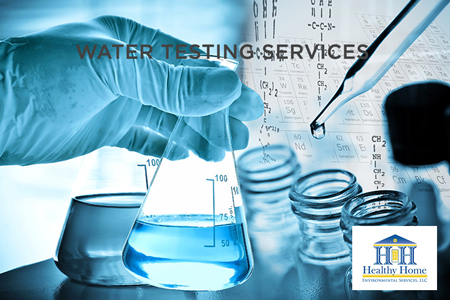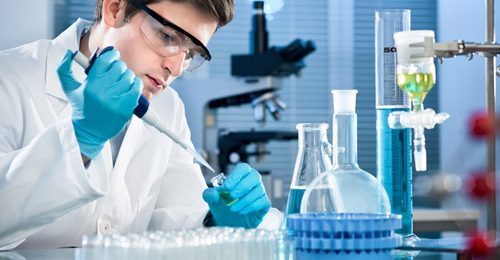Expert Well Water Testing Services: Get Accurate Results Quick
Wiki Article
Learn How Water Testing Can Find Impurities and Protect Your Family's Well-being
Comprehending the relevance of water screening is crucial for guarding your family members's health, as our water system can nurture unseen threats. From germs to heavy metals, pollutants present severe threats, commonly undetected without proper evaluation. By discovering the technicians of water screening, one can reveal the unseen hazards hiding in relatively pristine water sources. How do you establish which examinations are essential for your house, and what actions should be taken once possible dangers are exposed? As we navigate these inquiries, the path to guaranteeing water safety and a healthier living setting comes to be more clear.Relevance of Water Testing
Identifying the essential role water plays in sustaining life, the significance of water screening can not be overstated. Guaranteeing that water is complimentary from dangerous materials is crucial for maintaining healthy communities and communities. Well water testing services.Water testing acts as a positive step to determine potential hazards that might endanger water high quality. With methodical analysis, it helps detect physical, chemical, and biological parameters that might present threats to human health. Regular screening permits the very early detection of problems, helping with prompt treatments to prevent prevalent contamination and linked illness.
In addition, water testing supports regulatory conformity, making certain that water service providers meet established safety and security requirements and guidelines established by governmental authorities. It cultivates openness and accountability, developing public rely on the supply of water system. Screening gives valuable data that notifies water administration methods, enabling lasting use and preservation of this valuable source.
Essentially, water screening is a vital tool that safeguards public health and wellness, guarantees governing adherence, and promotes the lasting management of water resources. Its relevance in safeguarding both areas and people can not be underestimated.
Common Water Impurities
Amongst the numerous aspects that can compromise water top quality, usual water pollutants include a series of physical, chemical, and biological compounds that posture significant dangers to human wellness and the environment. Physical contaminants frequently include debris or natural products put on hold in water, which can influence clarity and taste. Chemical contaminants encompass a broad selection of substances, consisting of pesticides, herbicides, metals like lead and mercury, and commercial chemicals. These chemicals can penetrate water supplies through farming runoff, commercial discharges, or seeping from pipes and tank.Organic contaminants, mostly microorganisms, infections, and protozoa, arise from human and animal waste going into water systems. Pathogens such as E. coli, Giardia, and Cryptosporidium are infamous for creating intestinal diseases and can be specifically harmful to kids, the elderly, and those with compromised body immune systems. Nitrites and nitrates, usually originating from plant foods, position another health threat, especially to babies, possibly leading to conditions like methemoglobinemia or "blue baby disorder."
Furthermore, emerging contaminants, consisting of pharmaceuticals and individual treatment items, have elevated issues due to their perseverance and unknown long-lasting effects. Recognizing these pollutants is crucial for executing efficient water treatment approaches and making sure safe alcohol consumption water.
Exactly How Water Screening Works
Recognizing the spectrum of impurities in water underscores the value of effective screening methods to guard public health and wellness. Water testing is a systematic procedure developed to identify and quantify numerous contaminations that might posture risks to human wellness. This entails a collection of logical treatments that discover impurities such as germs, hefty steels, natural chemicals, and other toxins. The screening procedure generally starts with example collection from the water resource, guaranteeing that examples are uncontaminated and representative throughout the collection procedure.When samples are gathered, they undergo research laboratory analysis using various techniques. Chemical testing typically includes spectrometry or chromatography, both of which can determine and determine particular chemical compounds. For microbiological testing, approaches such as membrane filtration or enzyme substrate tests are utilized to detect pathogenic bacteria. In addition, physical characteristics like turbidity, ph, and shade are analyzed to give insight into the overall top quality of the water.
The precise methods used in water screening depend on the particular pollutants of issue and the water's intended use. By regularly applying these extensive screening protocols, researchers and public wellness officials can guarantee the safety and security and top quality of water, therefore shielding neighborhoods from potential health and wellness risks.
Choosing the Right Examination
The first step is analyzing the water resource-- be it local, well, or surface water-- as each has distinctive risks. Metropolitan water may need testing for disinfectant byproducts, while well water may require screening for nitrates, germs, and heavy steels.Next, think about current events and ecological elements. Close-by farming activities might necessitate screening for herbicides and pesticides, whereas industrial zones can require look for chemical pollutants. In addition, any type of adjustments in water preference, appearance, or odor need to prompt details testing for typical pollutants like lead, chlorine, or biological microorganisms.
Professional water screening services use extensive packages that target a large range of prospective impurities. These sets often straighten with standards set by the Epa (EPA) or regional wellness divisions. For a much more tailored approach, talking to a water high quality specialist can offer insights right into which certain examinations are essential based upon local worries and private wellness needs, making certain the defense of your household's well-being.

Preserving Water Safety And Security

Along with screening, appropriate maintenance of water supply plays an important function. This includes inspecting and servicing plumbing systems, storage containers, and septic systems to protect against leaks or backflow that might introduce pollutants - Water Testing Services Near Me. Using water filtering systems developed to address specific local concerns can further safeguard against pollutants, giving an additional layer of protection
Public awareness and education are equally essential in preserving water security. Communities should be educated concerning possible dangers connected with neighborhood water resources and the necessary actions to reduce them. Motivating public participation in water security initiatives promotes a cumulative obligation that enhances general efficiency.
Inevitably, a comprehensive approach that integrates routine screening, system upkeep, and area involvement is vital in securing water high quality. By doing so, family members can be assured of Water Testing Services Near Me tidy and risk-free water, protecting their health and wellness and well-being.

Verdict
Normal water screening is essential for determining contaminants such as bacteria, heavy metals, and chemicals that pose health risks. By analyzing water samples, unseen dangers can be found, guaranteeing the arrangement of secure drinking water.Understanding the importance of water screening is vital for guarding your family's wellness, as our water supply can harbor undetected dangers.Water testing offers as a positive measure to identify potential hazards that might jeopardize water quality.Furthermore, water screening sustains regulatory compliance, making certain that water carriers fulfill recognized safety criteria and guidelines set by governmental authorities. Metropolitan water may require screening for disinfectant by-products, while well water might require screening for nitrates, microorganisms, and hefty steels.
Routine water screening is an essential element in maintaining the high quality of water sources, making it possible for prompt interventions prior to contaminants get to hazardous degrees.
Report this wiki page